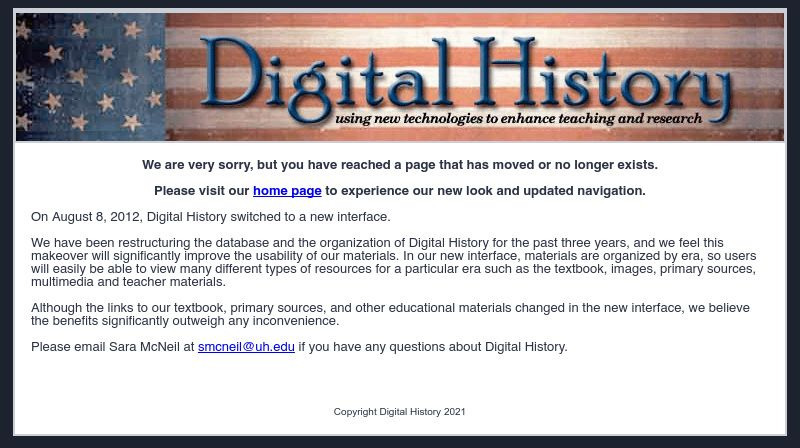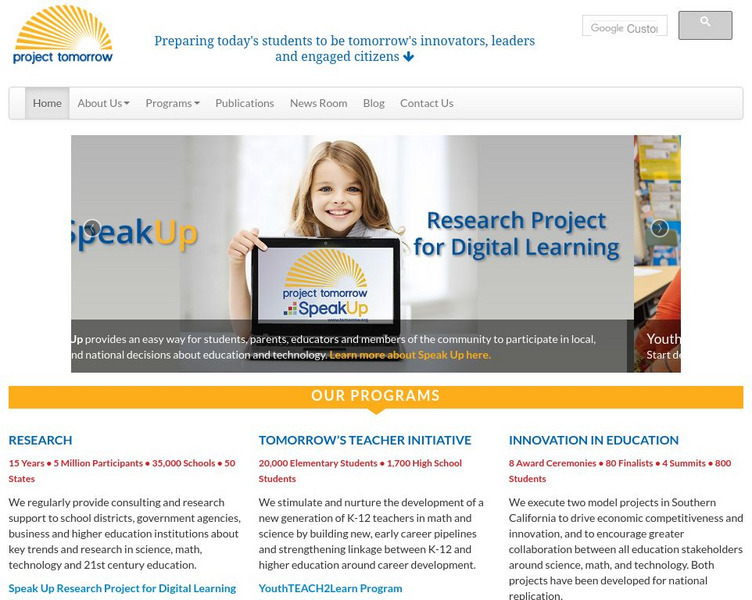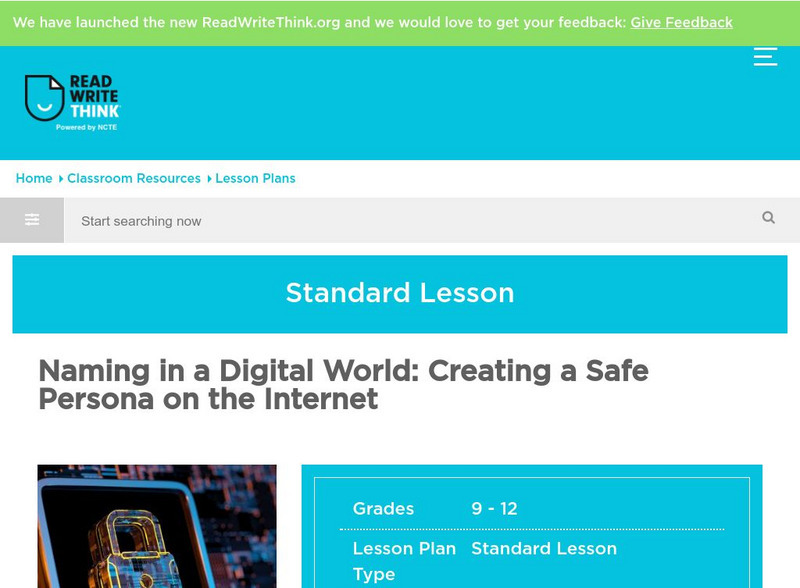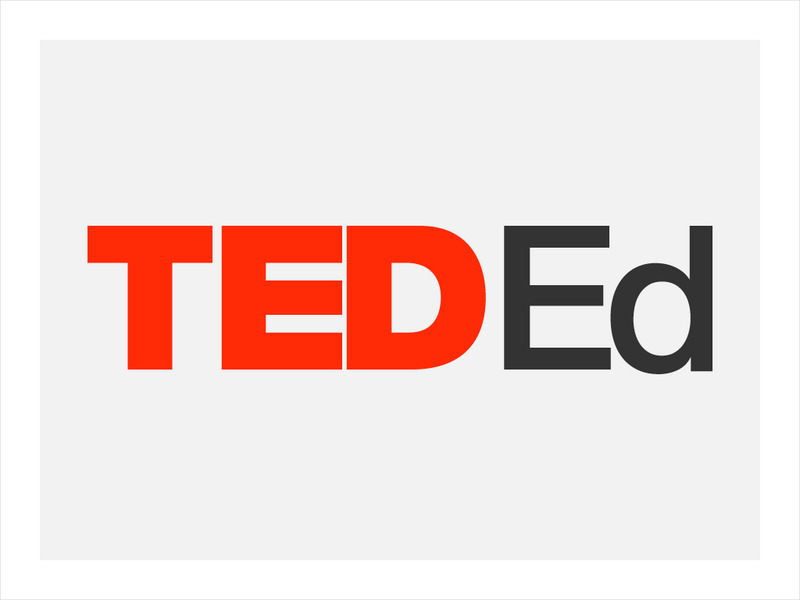Digital History
Digital History: Hamilton and Jefferson the Men and Their Philosophies [Pdf]
Thomas Jefferson and Alexander Hamilton played a huge role not only in crafting important documents in U.S. history, but also by serving as secretaries in George Washington's first cabinet. Read about their diametrically opposing...
Digital History
Digital History: Legacy of the New Deal
This is just a short article, but it includes big ideas. See the lasting legacy of the New Deal as the many of the programs begun at that time are still a large part of American government and life.
Digital History
Digital History: Republicanism
The framers of the Constitution had a great distaste for the monarchial society of Great Britain. See how this was reflected in the checks and balances they wrote into the Constitution in an effort to create a working republic.
Other
Project Tomorrow
Here, educators can read continuously updated reports on innovations in education. This organization is committed to ensuring that "today's students are well prepared to be tomorrow's innovators, leaders and engaged citizens of the...
Other
Project Tomorrow
Here, educators can read continuously updated reports on innovations in education. This organization is committed to ensuring that "today's students are well prepared to be tomorrow's innovators, leaders and engaged citizens of the...
Digital Public Library of America
Dpla: American Empire
This exhibition explores the origins, development, and eventual fall of the American empire and maps the diverse and rocky terrain of the American empire to show how it informs contemporary conversations on heritage, citizenship, racism,...
Digital Public Library of America
Dpla: Patriotic Labor: America During World War I
Take a look at the need for American labor during World War I. It provided second-class citizens, such as women and African Americans, a brief opportunity for better jobs that would help foment in them a desire for more and equal...
Other
Symantec Corporation: Symantec Security Center
An information resource on threats to computer security, how to identify and report viruses, up-to-date articles on computer system vulnerabilities, etc.
REMC Association of Michigan
Remc Association of Michigan: 21 Things4 Students: 6. Cyber Safety
This learning module is made up of nine quests organized into sets of three. In the first set, students learn how to protect themselves online. In the second, they go through three simulations/games to learn how to protect their...
Other
Computer Knowledge: Computer Knowledge Virus Tutorial
This site contains a tutorial which includes an overview of viruses, types of viruses, the history of viruses, and virus prevention.
Other
Wosu Public Media: Are You Digi Fit?: Choose to Be Positive With Others Online
This lesson teaches children how to behave appropriately when interacting with others online. They are guided in understanding how their words can be perceived by others online and how to deal with an online bully. Includes links to two...
ReadWriteThink
Read Write Think: Creating a Safe Persona on the Internet
Contains plans for five lessons that explore naming conventions and safety on the internet. In addition to objectives and standards, this instructional plan contains links to sites used in the lessons as well as assessment and reflection...
Edutopia
Edutopia: Common Core in Action: Teaching Online Ethics
Looking at the responsible use of intellectual property is one key element of digital citizenship that can be connected to eighth grade Common Core Standards. How do we as educators help students respect other people's work and not abuse...
Other
I Scoop: Industry 4.0 to Society 5.0: Big Societal Transformation Plan of Japan
Society 5.0 aims to tackle several challenges by going far beyond just the digitalization of the economy towards the digitalization across all levels of the Japanese society and the (digital) transformation of society itself. One of the...
TED Talks
Ted: Ted Ed: Clay Shirky: How Social Media Can Make History
Clay Shirky shows how social media services such as Facebook, Twitter and TXTs help citizens in repressive regimes to report on real news, thus changing the nature of politics. [15:49]
Alabama Learning Exchange
Alex: Happy Constitution Day
Students work in groups to create presentations answering who, what, when, where, why, and how questions concerning the U.S. Constitution. Presentations will be used to create digital Constitution Day Program.
Other
Wabash College: Introduction to Network Etiquette
This site from Wabash College gives rules not only for internet etiquette, but more specifically for etiquette concerning networks. This site is particularly relevant to college students.
Common Sense Media
Common Sense Media: Keeping Games Fun and Friendly
Social interaction is part of what makes online gaming so popular and engaging for kids. But online communication can come with some risks. This instructional activity helps students understand how to keep their gaming experiences fun,...
Other
Common Sense Media: Strong Passwords [Pdf]
In this instructional activity, students learn how to create secure passwords in order to protect their private information and accounts online.
Other
Common Sense Media: The Power of Words [Pdf]
Students consider that while they are enjoying their favorite websites they may encounter messages from other kids that can make them feel angry, hurt, sad, or fearful. They explore ways to handle cyberbullying and how to respond in the...
Other
Common Sense Media: Private and Personal Information [Pdf]
For this lesson young scholars learn the difference between private information and personal information, distinguishing what is safe and unsafe to share online.
Other
Common Sense Media: Talking Safely Online [Pdf]
In this lesson students learn that they can develop rewarding online relationships, but that they should never reveal private information to a person they know only online without asking their parent or guardian for permission.
Other
Cic Online: Cyberbullying: Identify and Respond [Pdf]
With this resource, learn how to know when cyberbullying is happening and how to confront the problem. PDF (requires Adobe Reader).
Other
Cyber Smart!: Whose Is It, Anyway? [Pdf]
A worksheet to accompany a lesson where students learn that, although the Internet makes it very easy, copying others' work and presenting it as one's own is unethical, unfair, and unacceptable.
Other popular searches
- Computer Netiquette
- Internet Netiquette
- Technology Ethics Netiquette
- Email Netiquette
- Computer Safety and Privacy
- Computer Safety Rules
- Netiquette Lesson Plan
- Netiquette and the Internet
- Netiquette Leson Plan
- Emoticons and Netiquette
- Netiquette of Teachers
- Computer Safety for Kids


![Digital History: Hamilton and Jefferson the Men and Their Philosophies [Pdf] Website Digital History: Hamilton and Jefferson the Men and Their Philosophies [Pdf] Website](https://d15y2dacu3jp90.cloudfront.net/images/attachment_defaults/resource/large/FPO-knovation.png)








